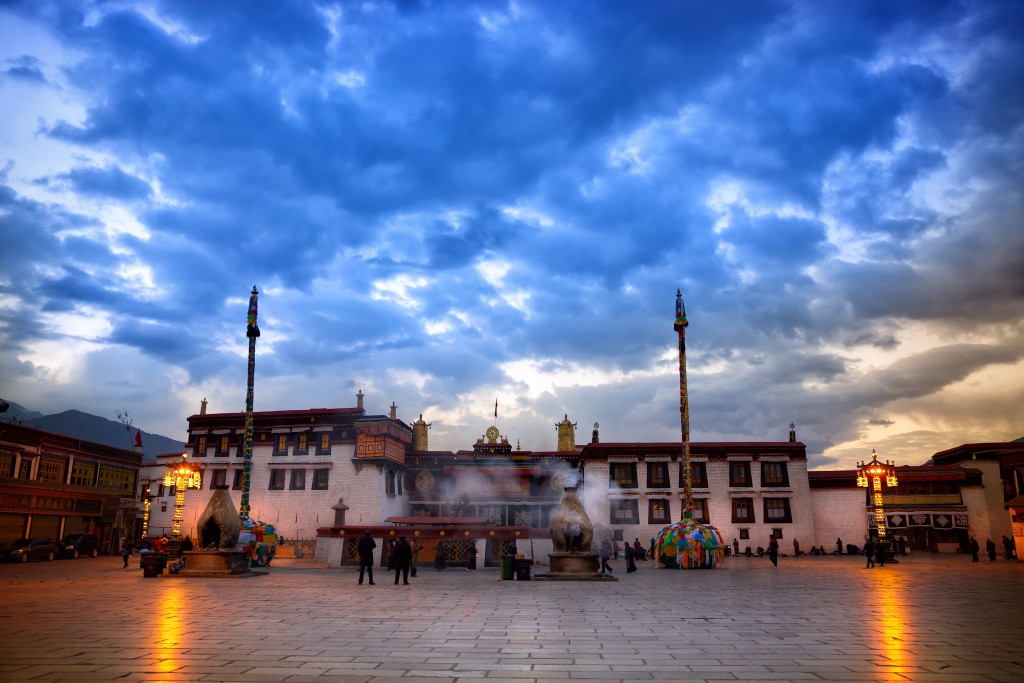
(TibetanReview.net, Oct22, 2017) – A communist party leader responsible for dealing with non-communist party groups, ethnic minorities and religious groups has on Oct 21 made an outlandish claim, speaking on the sidelines of the ongoing week-long 19th national congress of the Communist Party of China in Beijing, that Tibetan Buddhism was a special religion “born in our ancient China”. Reuters Oct 21 quoted Zhang Yijiong, executive vice-minister of the United Front Work Department of the Communist Party of China (CPC) Central Committee and who heads the department’s Tibet working group, as saying, “It’s a Chinese religion. It didn’t come in from the outside.”
While Buddhism had reached China much earlier, it is a self-evident fact that the religion came to Tibet from India, with most of its texts being translations done by ancient Tibetan scholars from Indian originals.
But Zhang’s assertion is in keeping with his party and government’s fact-defying position that religions in China must adapt themselves to the situation in China and must be Chinese in orientation. Zhang has worked in Tibet Autonomous Region from 2006-2010 as a deputy Communist Party boss.
Globaltimes.cn, which is run by China’s party mouthpiece, the People’s Daily, quoted him as saying at the press conference, “The United Front Work Department of the CPC Central Committee has provided active guidance to religions so that they can adapt themselves to socialist society… that religions in China must be Chinese in orientation.”
He was also cited as saying his department had faithfully implemented the CPC Central Committee’s strategies on the governance of Tibet and Xinjiang and “relentlessly fought against secessionism, which safeguard the national unity, ethnic solidarity and social stability”.
He has added that China was guiding the sinicization of Tibetan Buddhism while expressing hopes that it could draw the essence of Chinese culture, “which also caters to the needs of the development of Tibetan Buddhism”.
The five-yearly congress is a gathering of 2,287 hand-picked delegates, representing 89 million party members from 31 provinces and nine state agencies – from state-owned enterprises to the People’s Liberation Army. But the so-called congress is nothing more than a well-scripted political ceremony, with the outcome of the weeklong gathering being already finalized by a handful of leaders behind closed doors beforehand.


